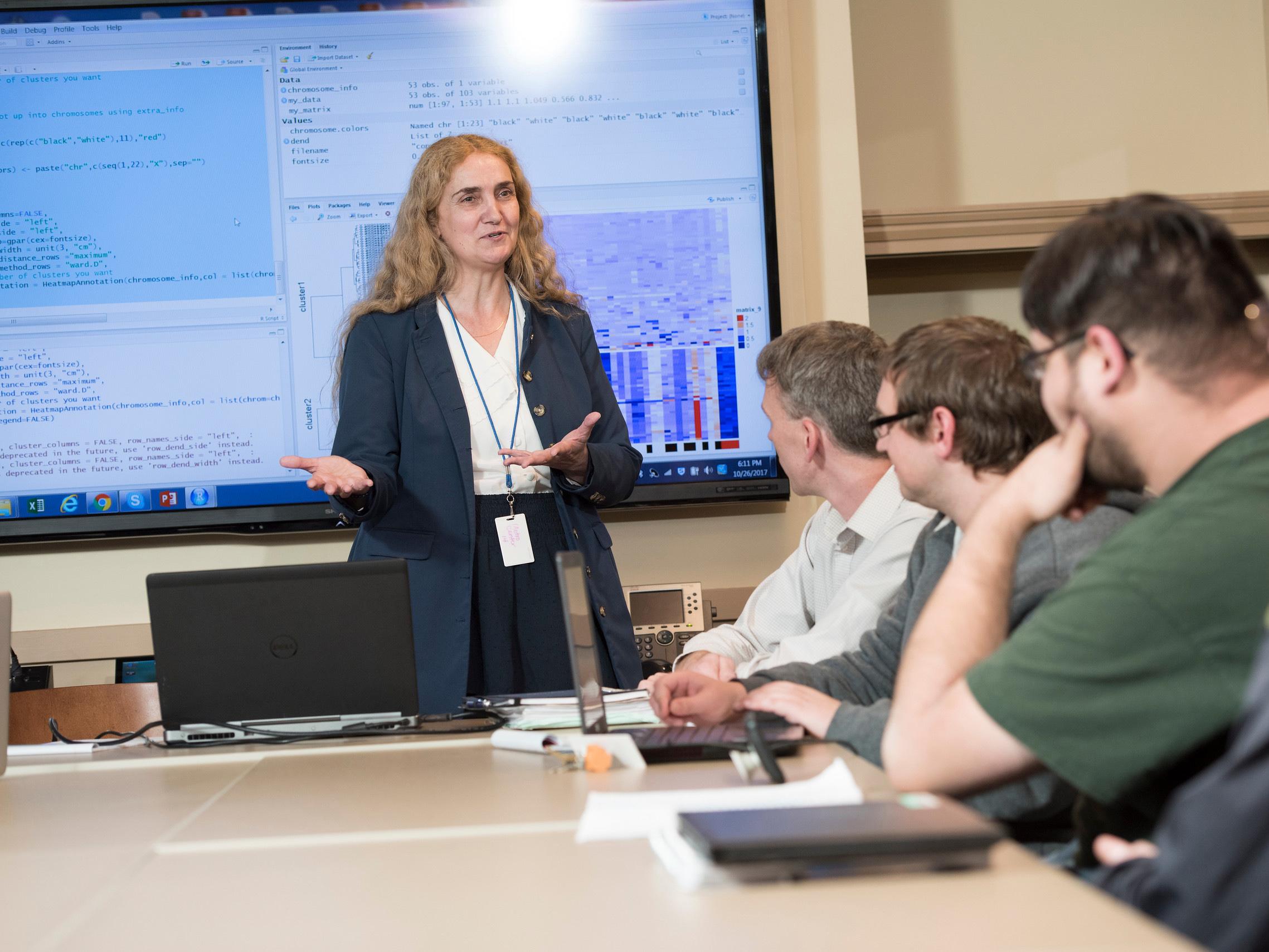Dr. Isabelle Bichindaritz, an associate professor of biomedical informatics and director of biomedical informatics programs, was part of a team that made a breakthrough that can increase the odds of surviving breast cancer.
Recently published in the Molecular Oncology journal, “ABI1-based expression signature predicts breast cancer metastatis and survival” explains the findings around a gene that correlates with the most aggressive types of cancer and lowest survival rates –- and could offer support for a new treatment.
“If we can find some genes that can predict the survival of a patient, we can know which patients have what risk of developing, for example, metastatic breast cancer,” Bichindaritz explained, which can lead to different treatment and monitoring programs.
“With breast cancer in the early stages, the treatments are pretty good, but the issue is that some over time will develop metastatic breast cancer, which is a stage four,” Bichindaritz said. “When this happens, options are very limited. Once the cancer is metastatic, survival is very low, because not many treatment options work.”
The team focused on abelson interactor protein (ABI1), part of the WAVE (Wiskott-Aldrich Verprolin homologous protein) complex in human bodies. ABI1 is a multi-protein unit found to play a key role in making cells invasive. This study tested its theory on mice, wherein breast cancer cells with the ABI1 marker depleted caused tumors to grow more slowly or not at all.
Importance of data
Bichindaritz contributed data analysis across a large sample size, working in large part with experts at SUNY Upstate Medical University led by Dr. Leszek Kotula.
“I contacted Upstate Medical University, because my research is in biomedical informatics,” the use of computer science and datasets for medical analysis, Bichindaritz recalled, and was connected to Kotula’s ongoing and groundbreaking work on cancer analysis.
“With cancer, you need a lot of data and you need good tools to analyze the data, so that's why it's a good area where we can use informatics to contribute to the research,” Bichindaritz said. “The goal is to contribute to the research and to help the oncologists better detect and better treat cancer.”
This also represents an area where students in the SUNY Oswego biomedical and health informatics master’s program can contribute, particularly in thesis and capstone projects.
“Students like to be at the forefront of research, and they're very interested in this project, in particular,” Bichindaritz said. “I'm going to continue it because there are so many datasets available that we can integrate and go further. There is so much to discover, so that's exciting.”
Breast cancer remains a challenging foe –- killing an estimated 200,000 people per year –- and rising cancer rates in general mean that this research on the disease remains important.
“There is a lot we don't know yet, but there is still a lot of progress,” Bichindaritz said. “A lot of work is in the integration and different types of genetic and molecular data. I suspect this is the first stage, and we will have many more that we can integrate that will be important in the future.”




